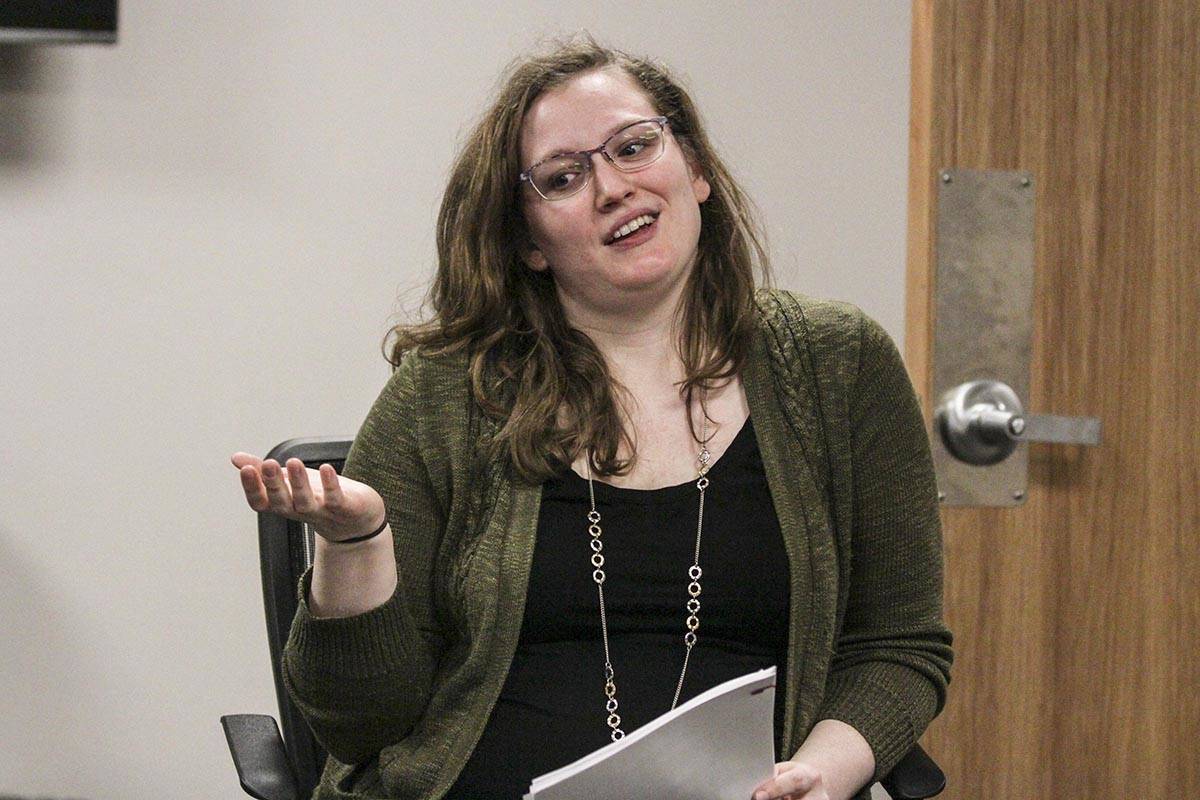This season of the National Alliance on Mental Illness’ Inside Passages speaker series ended with an important topic, especially for the Juneau community: Suicide.
“I’ve struggled so much myself,” said Kristina Moore-Jager, a program manager with the Department of Health and Human Services, and a survivor of mental health conditions and suicidal ideations. “We need to normalize talking about it.”
Alaska has the highest rate of suicide in the country, according to the Alaska Bureau of Vital Statistics. Alaska Native youth between 15-24 are the single most at-risk group, being nearly three times as like to die by suicide as the average American, but all Alaskans are at higher risk than their Lower 48 counterparts. Ninety percent of people who die by suicide have depression or a treatable mental or substance abuse disorder, according to Alaska Mental Health Trust.
“I had a lot of friends, had a lot of fun, but I was ultimately an unhappy person when I was younger and didn’t know how to ask for help,” said event speaker Aaron Surma, a survivor of suicide attempt, and program coordinator for the Juneau Suicide Prevention Coalition.
Speakers talked to a crowd about the struggles of mental health, and the uphill battle to reach out and ask for help from friends and from institutions.
“The most dangerous times were when I did not reach out, when I didn’t let anybody know,” Moore-Jager said. “It just takes a minute, just one decision, and your life is changed forever, or it’s over. Don’t blame somebody. Don’t blame their legacy if they end up losing that battle.”
Surma and Moore-Jager talked about the changing field of supporting those with suicidal ideations. It’s a field, they said, that’s evolved as experts learn more about what causes someone to want to take their own life and how best to help them.
Juneau police arrest man for weapons misconduct, possession of drugs
“As many of you are aware, you can perpetuate the cycle on and on through generations,” Moore-Jager said. “The memories and emotions from childhood trauma, they last forever. They never go away.”
Having a “peacetime” plan in place for talking with someone who might be in a crisis can be a key point in helping, Surma said. It’s a lot easier to talk to someone who might be experiencing a rough time when things are calm than having a first conversation checking in with someone when things are fraught.
“Language during the conversation is really important, when you’re trying to get someone to open up. Unhelpful language gets into the morality or the judgment around it,” Surma said. “Commit suicide…” there’s a moral judgment around that phrase. You want to connect with the person, you want them to open up.”
Juneauites get inked for International Suicide Survivors Day
Keeping engaged with people who may need help, having a plan in place in case they need professional help, and asking them directly and nonjudgmentally if they’re considering suicide are all best practices, Surma said.
“It’s not common for people and for kids to get that information and that education. I think adults need to do a better job,” Moore-Jager said. “I think they are starting from a better place but it’s still a process to figure it out. You’re never going to download emotional intelligence all at once,” Surma added.
For more resources
Check out the Juneau Suicide Prevention Coalition for both emergency and prevention resources.
• The National Suicide Prevention Lifeline number is 1-800-273-8255, and it is available 24 hours every day. The toll-free in Alaska Careline number is Toll-free in Alaska 1-877-266-4357 or 452-4357 in Fairbanks. Alaska’s statewide hotline is staffed by Alaskans for Alaskans from 6 to 11 p.m. weekdays, and overnights on Friday and Saturday. During other hours, calls are automatically referred to the National Suicide Prevention Lifeline.
• Contact reporter Michael S. Lockett at 757.621.1197 or mlockett@juneauempire.com.

